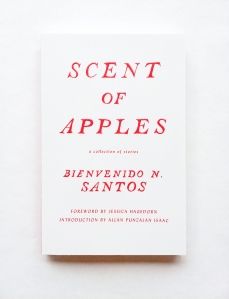 In 2011, President Barack Obama proclaimed March 31 as Cesar Chavez Day in the United States—a celebration of the life and legacy of the important Chicano civil rights and labor leader. With the American Society for Environmental History (ASEH) and Association of Writers & Writing Programs (AWP) annual conferences also in full swing this Cesar Chavez Day, it’s only fitting that we are sharing a preview of Sarah D. Wald‘s forthcoming book, The Nature of California: Race, Citizenship, and Farming since the Dust Bowl (May 2016). Analyzing fiction, nonfiction, news coverage, activist literature, memoirs, and more from the Great Depression through the present, Wald’s book looks at how California farmlands have served as a popular symbol of American opportunity and natural abundance, and addresses what such cultural works tell us about who belongs in America, and in what ways they are allowed to belong. By bringing together ecocriticism and critical race theory, the book addresses an important gap in how we understand questions of citizenship, immigration, and environmental justice.
In 2011, President Barack Obama proclaimed March 31 as Cesar Chavez Day in the United States—a celebration of the life and legacy of the important Chicano civil rights and labor leader. With the American Society for Environmental History (ASEH) and Association of Writers & Writing Programs (AWP) annual conferences also in full swing this Cesar Chavez Day, it’s only fitting that we are sharing a preview of Sarah D. Wald‘s forthcoming book, The Nature of California: Race, Citizenship, and Farming since the Dust Bowl (May 2016). Analyzing fiction, nonfiction, news coverage, activist literature, memoirs, and more from the Great Depression through the present, Wald’s book looks at how California farmlands have served as a popular symbol of American opportunity and natural abundance, and addresses what such cultural works tell us about who belongs in America, and in what ways they are allowed to belong. By bringing together ecocriticism and critical race theory, the book addresses an important gap in how we understand questions of citizenship, immigration, and environmental justice.
The excerpt below focuses on what Wald calls “the often-overlooked points of intersection between the UFW [United Farm Workers] and environmentalism.”
The following is an excerpt from the forthcoming book, The Nature of California: Race, Citizenship, and Farming since the Dust Bowl, by Sarah D. Wald:
Most environmental historians cite Rachel Carson’s Silent Spring (1962) as the modern environmental movement’s birth announcement. They distinguish mid-twentieth-century environmentalism from the conservationism and preservationism of the Progressive Era in large part through its concern for toxins and other forms of pollution. Many participants in the environmentalism of the 1960s and 1970s expressed concern that human use of technology fundamentally threatened the circle of ecological life and imperiled humanity’s ability to sustain itself. Carson echoed these themes, linking the death of songbirds to the potential loss of human life. The popular concern for such issues congealed with the first Earth Day in April 1970. Organizers billed Earth Day as a national teach-in that included events at fifteen hundred colleges and ten thousand schools. As historian Adam Rome wrote, “The teach-ins collectively involved more people than the biggest civil rights and antiwar demonstrations in the 1960s.” Millions participated.
Join for the launch event in Portland, Oregon hosted by Bark:
Sunday, May 15, 5:00-9:00 p.m. //
Bark, 351 NE 18th Ave., Portland, OR 97232
Pre-order books at 30% off using discount code WSH2275
The history of modern environmentalism is entangled with the remarkable story of the United Farm Workers, the first successful unionization effort for farmworkers. In 1962, the same year Carson published Silent Spring, Cesar Chavez and Dolores Huerta resigned from the Community Service Organization to focus on organizing farmworkers, and Chavez founded the National Farm Workers Association (NFWA). In 1965, the largely Filipino farmworkers union, the Agricultural Workers Organizing Committee (AWOC), began the famous grape strike, with Chavez’s organization voting to strike in solidarity. In 1966, the National Farm Workers Association (NFWA) and AWOC merged into the United Farm Workers Organizing Committee (UFWOC). On July 29, 1970, just three months after the first Earth Day, the United Farm Workers (UFW) achieved a major victory, signing 150 contracts with the major Delano grape growers, covering thirty thousand workers. The success was short-lived, as the International Brotherhood of Teamsters began undermining the UFW by signing “sweetheart” deals with the growers. This controversy led to a renewal of the strike and boycott throughout the 1970s. The UFW never again had as many unionized workers. Continue reading

 Distinguished Filipino writer Bienvenido N. Santos was born on this day 105 years ago (March 22, 1911). University of Washington Press recently reissued his
Distinguished Filipino writer Bienvenido N. Santos was born on this day 105 years ago (March 22, 1911). University of Washington Press recently reissued his 


